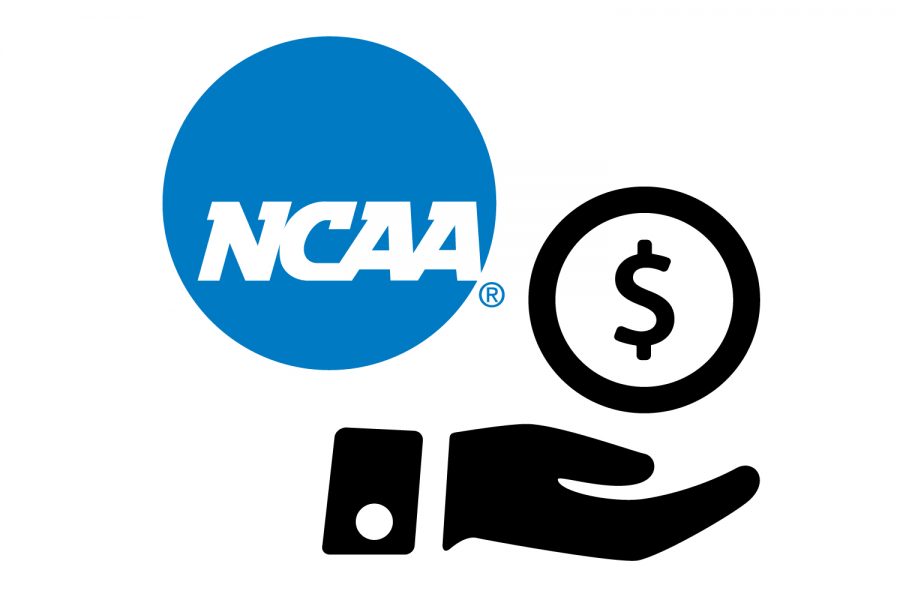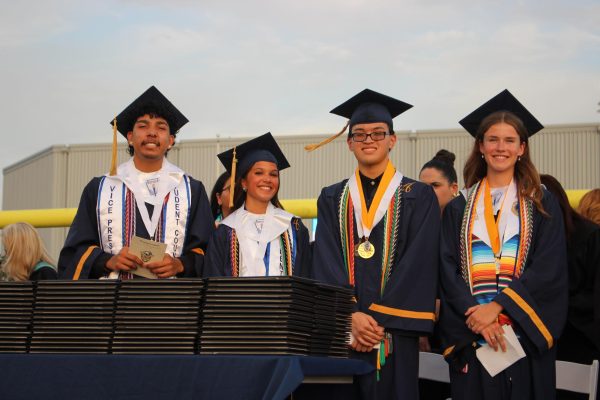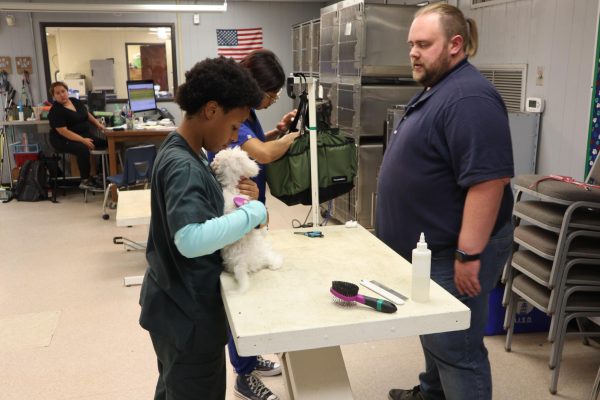College athletes demand they should be paid for play
December 10, 2019
When fans watch an NCAA college sports team on TV, it can be hard to distinguish it from a major league
sporting event, with the broadcasts have all of the glitz, slick graphics and big-name sponsors. However, there is a big difference, the college players get paid nothing when they are in college.
This is because the National Collegiate Athletic Association (NCAA) has strict rules that restrict college players from receiving payments from sponsors or the universities they play for. The result is a ridiculous situation in which players sometimes cannot afford basic necessities while they are in college because they are busy with college classes and playing sports.
Because the NCAA has refused to change the rules, some states are getting into the middle of the controversy by passing laws to benefit student-athletes.
On September 30, 2019, Gov. Gavin Newsom signed a law in California, allowing college athletes to sign endorsement contracts that will allow them to profit from their image and skills.
This new bill called “Fair Pay to Play Act” goes into effect January of2023, but it’s something that many athletes are look- ing forward to. California universities that do not comply with the law will be banned from participating in competitions. The NCAA board of governors wrote a letter to the Governor of California saying that this bill would erase the line between college athletics and professional league, giving those universities the ability to recruit players, which will result in the prohibition of California schools to participate in NCAA competitions.
In a surprise announcement on October 29, the NCAA announced that it will consider making an adjustment in its rules to allow college students monetize their image, name and likeness under a “collegiate model,” meaning that the board of directors and the NCAA are starting to feel that pressure of the critics over so many years. According to an article from e Washing- ton Post, NCAA officials said the issues will not be solved overnight, and it will go on for several years until they come up with a verdict. I think that this announcement was nonsense and a waste of time.
Instead, the NCAA should spend more time on coming up with regulations that state the boundary between professionals and students. According to an article from CNN, the NCAA brought over $1 billion dollars in revenue during the 2016-2017 school year. Meanwhile, NCAA universities around the US brought over $14 billion dollars. Most of that money came from the Division I Men’s Basketball Tournament and football respectively.
That’s a ridiculous amount of money that the NCAA is refusing to share with the athletes when they are the ones putting their lives on the line. Many of these students go to sleep hungry and yet many universities have not taken action in order to change that. Even graduate students have been affected, including the famous college basketball player Ed O’Bannon who sued the NCAA for the use of his likeness in a video game.
Diana Taurasi, a player from the WNBA, claims that the University of Connecticut is still profiting from her image 15 years after she graduated. Here is a simple solution to solve this. More states should pass laws like California until the NCAA gets the point that the current situation is unfair and just plain wrong. Students should be allowed to sign endorsement deals to get any type of compensation. Allow the students to profit o from their likeness so that they can push their way through college without the concern of not being able to afford their education, which in the end, is the most important thing.










